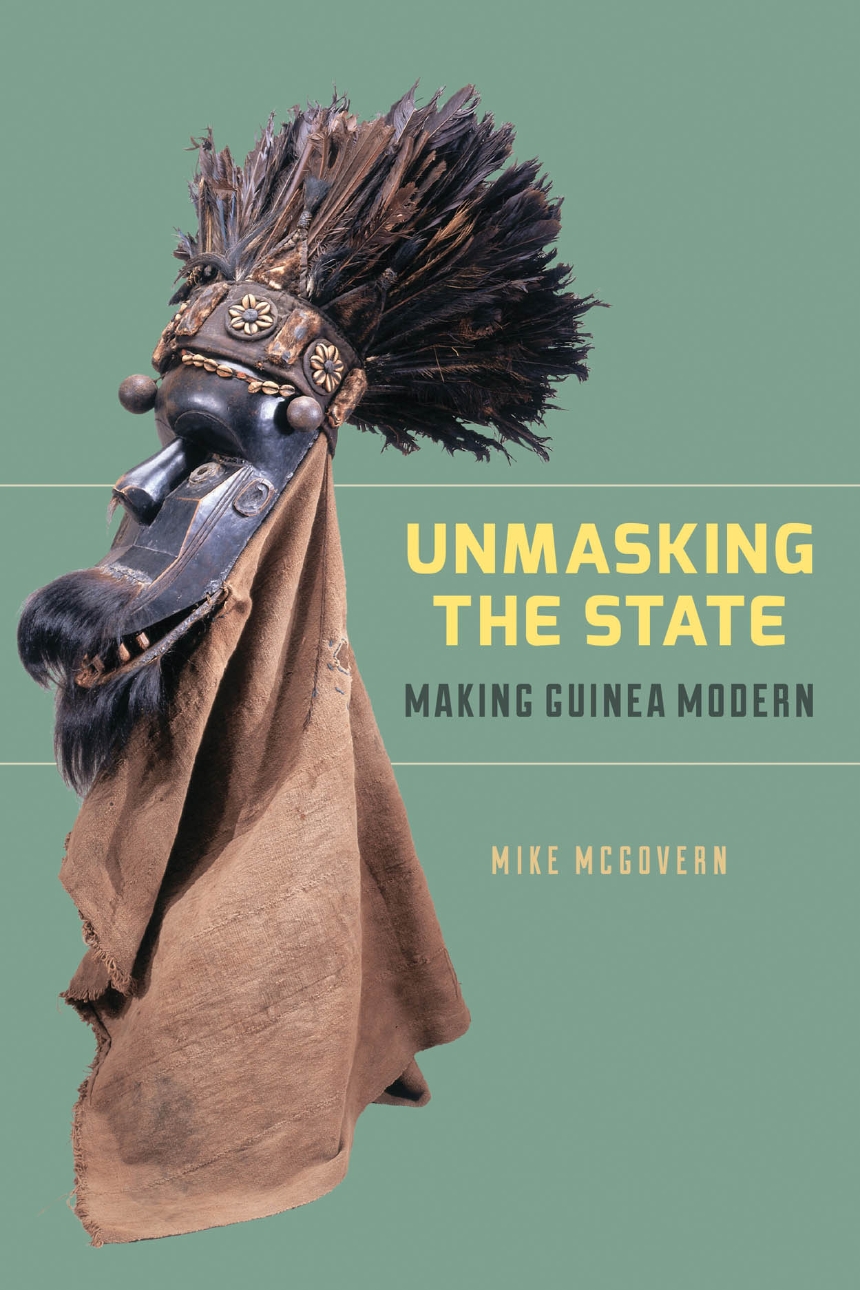Unmasking the State
Making Guinea Modern
312 pages | 12 halftones, 6 maps, 8 tables | 6 x 9 | © 2012
Anthropology: Cultural and Social Anthropology
History: African History
Reviews
Table of Contents
Note on Orthography
Acknowledgments
Part I: The Grammar and Rhetoric of Identity
One / Competing Cosmopolitanisms
Iconoclasm as a Cosmopolitan Idiom
Uncanny Iconoclasm
Jouissance and the Search for Purity
Ethnogenesis: Two or Three Things I Know about It
Iconoclasm and Ethnogenesis in the Context of Competing Cosmopolitanisms
The Chapters
Two / The Tactics of Mutable Identity
Insecurity, Migration, and Fluidity of Identities
The Koivogui-Kamara Corridor and the Question of Ethnicity
Clanship and Ethnic Mediation
Who Was “Malinke” in 1921?
Living with Violence, Binding Insecurity
Interlude I: Togba’s Sword
Three / Autochthony as a Cultural Resource
Autochthony as a Cultural Resource
The Politics of Sacrifice
The Importance of Oaths and Ordeals
Four / The Emergence of Ethnicity
Space, Landscape, and Production: Loma Rice Farming
Land Tenure and Cash Crops
The Logic of Ethnicized Territory
Mise en Valeur and Ethnicity
Mamadi’s Story
Five / Portable Identities and the Politics of Religion along the Forest–Savanna Border
Portable Identities
Iconoclastic Precedents
Monotheism and Modernist Anxiety
Northern-Southwestern Mande Links and their Denial
Part II: Revealing and Reshaping the Body Politic
Interlude II: Bonfire
Six / Personae: Demystification and the Mask
Changing Notions of Personhood in Modernist Political Discourse: Personae, Masks, and Mystification
Contradictory Cosmopolitanism: Marxism and the Modern Person
Modernist Anxiety and Double Double Consciousness
Seven / Unmasking the State: Making Guinea Modern
Demystification, the Forest Region, and the Guinean Nation
Demystification: An “Inside Job”?
The Cultural Politics of Catching Up: A Comparison
A Convergence of Reasonings
Eight / Performing the Self, Performing the Nation
The Aesthetics of Discretion and the State
Aestheticization, Folklorization, Re-presentation
A Sociology of Ambition
Surviving Authoritarianism
Conclusion / Double Double Consciousness in an African Postcolony
The First Legacy: Denigration into Ethnic Solidarity
The Second Legacy: Embattlement into National Solidarity
Violence, Marginality, and Divided Consciousness
Appendix 1 / List of K?k?l?gi/zu and their dominant clans, according to Beavogui/Person
Appendix 2 / Agricultural Production in Giziwulu, 1999
Notes
Works Cited
Index
